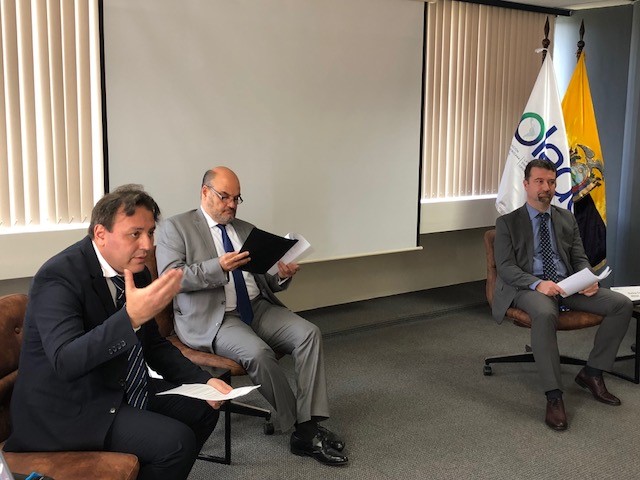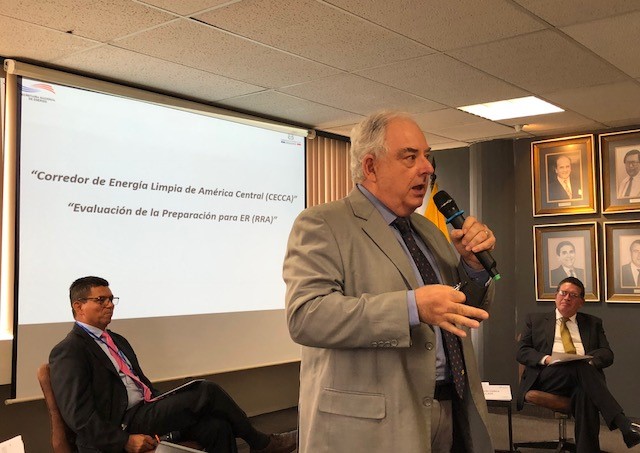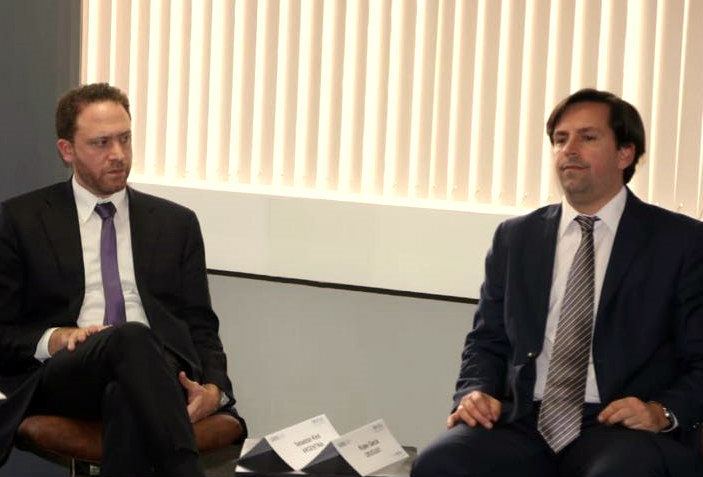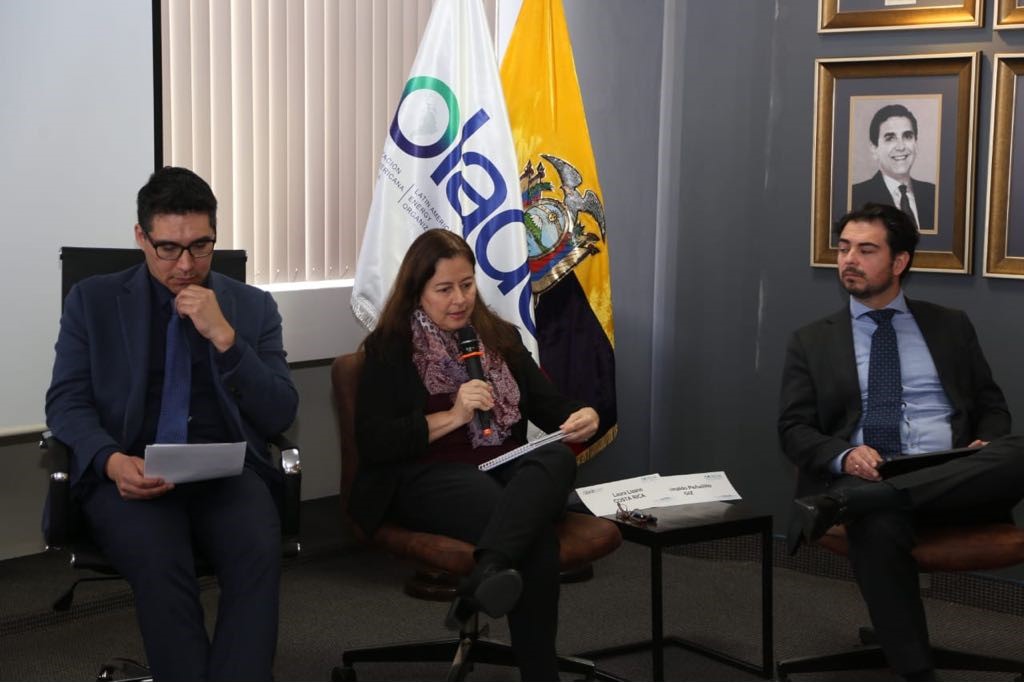
Renewable Energy Deployment in Latin America
A Joint Workshop by IRENA and OLADE
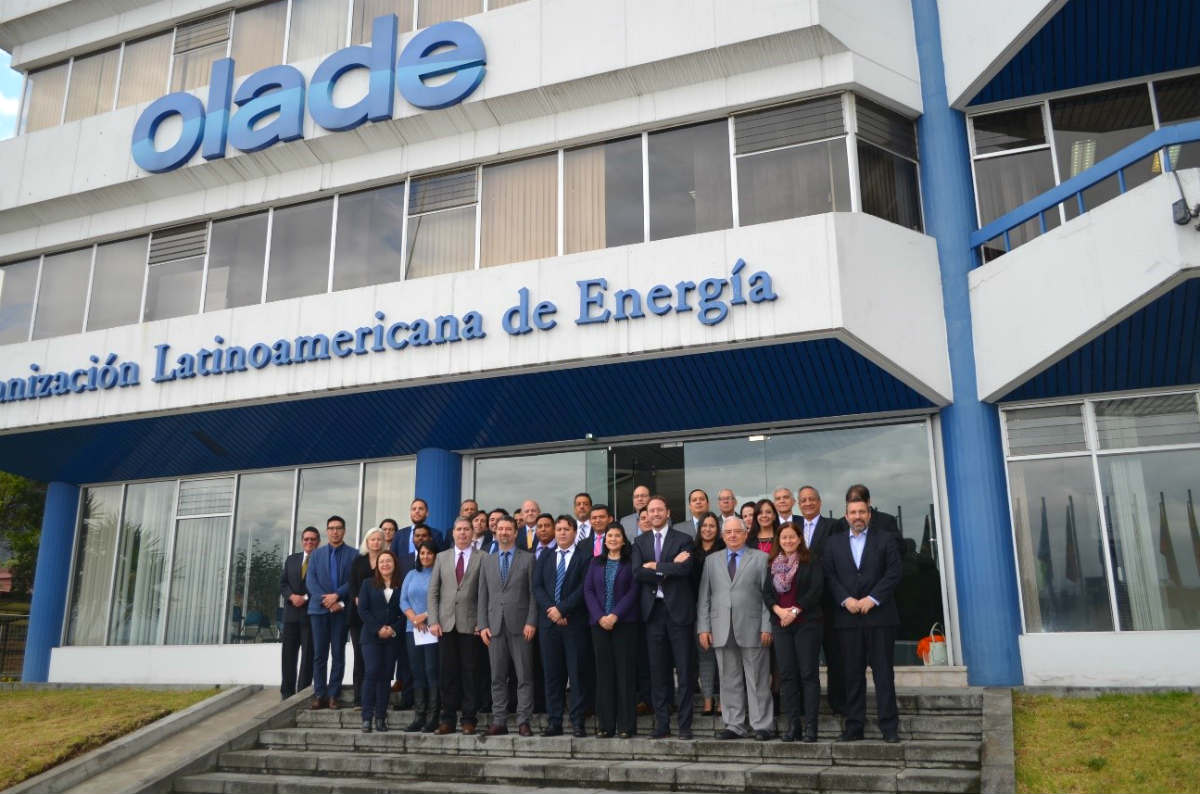
As part of its regional engagement in Latin America and the Caribbean, IRENA recently held a workshop, in cooperation with the Latin American Energy Organisation (OLADE), on Renewable Energy Deployment in Latin America. The workshop took place in the framework of the OLADE Experts Meeting, and brought together renewable energy policymakers, regulators, regional institutions and development partners.
Discussions centred on the key trends in the renewables sector in the region, with participants exchanging country experiences on renewable energy policy, regulation, and finance. Panel sessions focused on opportunities for accelerating the energy transformation in Latin America, renewable energy power purchase agreements (PPAs), and project development. To complement these sessions, IRENA presented a range of its tools and analytical products, including its PPA assessment model and project facilitation platform.
The meeting also provided an opportunity to review potential areas of further collaboration between the Agency and countries in Latin America. In this context, IRENA shared a set of possible activities for future implementation related to long-term power sector planning, REmap studies, power system flexibility, enabling policy and regulation, project development and finance, geothermal energy, and on IRENA’s Clean Energy Corridor of Central America (CECCA) initiative.
The workshop kicked-off with opening remarks from Mauro Intriago, Vice Minister of Electricity and Renewable Energy of Ecuador, Alfonso Blanco, Executive Secretary of OLADE, and Gurbuz Gonul, Acting Director of IRENA’s Country Support and Partnerships Division.
Accelerating the energy transformation in Latin America
The first panel session ‘Renewable Energy in Latin America’ highlighted many of the emerging trends in the renewables sector throughout the region. Several countries, including Argentina, Costa Rica and Uruguay, emphasized the importance of enabling policy and regulatory frameworks to overcome barriers to project deployment. At the same time, ECLAC and GIZ underlined the need for strengthening regional coordination and cooperation between countries, development partners and regional institutions, especially to support energy market integration. Throughout the discussion, the following points were raised:
- A long-term policy vision is critical for developing a strong renewable energy market, and supporting a sustainable pipeline of projects;
- Leveraging strong hydropower resources is key for balancing increasing shares of wind and solar energy in the power mix;
- With the progress made on renewables in the power sector, countries need to develop more policy drivers to scale-up renewable energy in end-use sectors. In this context, sector-coupling with the electrification of transport is a key opportunity;
- While many countries in Latin America are implementing e-mobility strategies, it continues to be a challenge for the region.
- Given the rapid growth in energy demand throughout Latin America, energy efficiency should be pursued in tandem with renewable energy targets and policy;
- Best practices from the region on implementing renewable energy policy and regulation should be consolidated, especially on issues such as tendering and risk mitigation mechanisms.
Designing renewable energy power purchase agreements
The session ‘Renewable Energy Power Purchase Agreements’ began with an introduction to IRENA’s PPA assessment tool, with panellists discussing some of the main issues impacting the design and implementation of current solar and wind energy PPAs in Latin America. Both El Salvador and Panama noted that new regulation and power market rules are often necessary to improve PPA structures for variable renewable technologies, while OLADE underlined that PPA designs are often outdated and reflect conventional generation sources. Over the course of the panel discussion, the following issues were highlighted:
- PPA design in Latin America should be improved to support variable renewable energy growth in the region, as sub-optimal design can be a disincentive to renewable energy investment;
- Support for renewable energy PPAs could be strengthened by viewing PPAs in a regional context, and gathering / disseminating information on many of the prevalent design constraints;
- Reallocating risk is important for updating PPA structures, and requires coordination with regulators and private sector;
- Regional renewable energy programs, such as CECCA, are vital for supporting renewable energy PPA design as contracts often do not allow efficient interaction with the wholesale market.
Renewable energy project facilitation
The final panel session ‘Renewable Energy Project Development and Finance’ focused on challenges to developing renewable energy projects in Latin America, as well as many of the common barriers to increasing financing flows towards projects. After an overview of IRENA’s project facilitation support tools, the panel examined some of the key practices for improving access to finance, market visibility and project quality. Both Chile and the IDB suggested that project facilitation support is critical to help lenders build stronger project portfolios and for developers to obtain financing more efficiently. Some of the main messages from the panel discussion included:
- Strong market mechanisms and innovative tendering design (such as Chile’s ‘time-block’ auction system) are key for attracting near-term private sector investment in the renewables sector;
- With steady growth in a national renewable energy market and stable policy, countries in the region can prove to be trustworthy destinations for foreign private capital flows;
- Development partners and international organizations can help countries increase the scale of renewable energy projects, which can in turn reduce overall transaction costs;
- While the public financing makes up a small amount of overall renewable energy financing in Latin America, it should target the off-grid and mini-grid sectors as these projects are often deemed to be uneconomic by private investors;
- Development bank financing is particularly important to help boost geothermal deployment in the region, given the high upfront financing costs.
Workshop Agenda
Workshop Presentations
- Global Renewable Energy Trends
Gurbuz Gonul, Acting Director and Head of Regions, Country Support and Partnerships, IRENA - The Renewable Energy Situation in Latin America and the Caribbean
Andres Schuschny, Director of Studies, Projects and Information, OLADE - Regional Approach to Expand Renewable Energy Deployment in Latin America and the Caribbean
Vanessa Interiano, Senior Adviser, IRENA - Power Purchase Agreements for Renewable Energy
Hameed Safiullah, Programme Officer, IRENA - Renewable Energy Project Development and Finance
Chris Marshall, Associate Programme Officer, IRENA
